|
In 2019, I was one of the last cohorts of fellows for the American Association for the Advancement of Sciences (AAAS) Leshner Fellowship for Public Engagement. I thank my friend and colleague Dr. Julie Lesnik for recommending this program to me and me to this program. The program was designed for mid-career professionals and helped me and other fellows take another step up from what we've achieved in our careers and efforts at public engagement. We thought we were ahead of the game, but we learned what more we could do and that publicly engaged scholarship is a discipline and not just something I thought I could do because I can talk to a public audience. The requirements of the Leshner Fellowship were to administer a public engagement project related to our research and another for a scientific institution (usually our own university). I developed a documentary project about tattooing in Samoa and proposed to develop tenure and promotion guidelines at my university for evaluation public engagement. 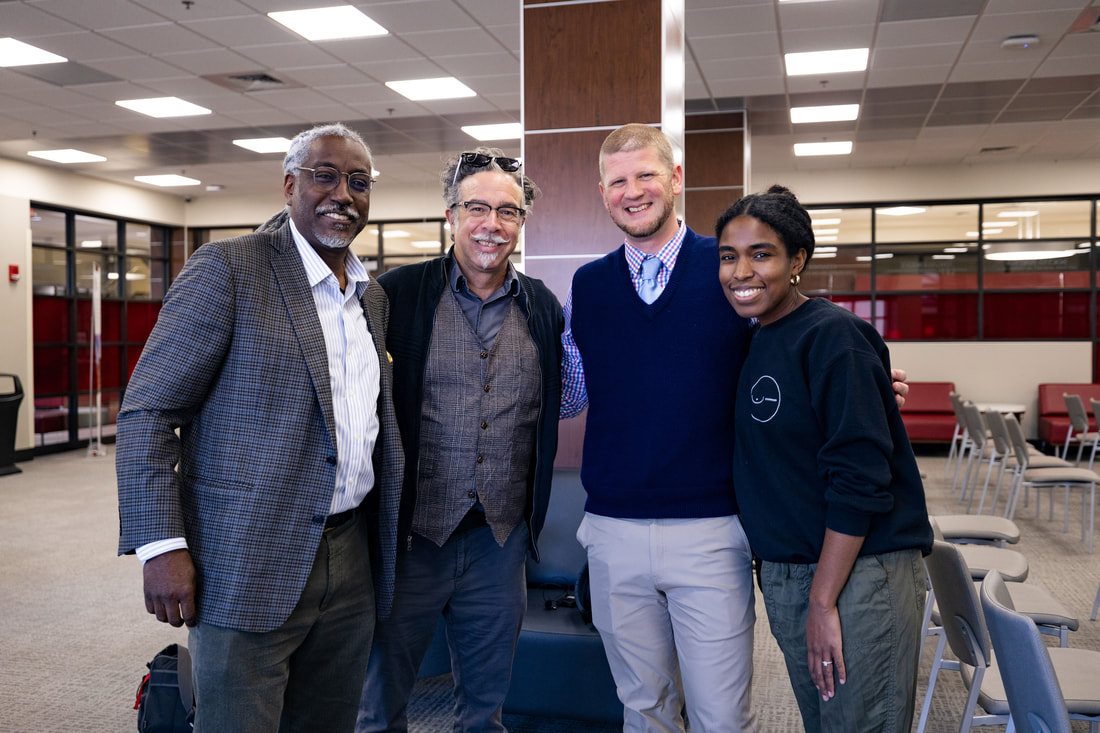 Dr. Timothy Eatman, me, Dr. Drew Pearl, & Dr. Eatman's daughter, who drove from Atlanta to surprise her father during his visit to the South. Dr. Timothy Eatman, me, Dr. Drew Pearl, & Dr. Eatman's daughter, who drove from Atlanta to surprise her father during his visit to the South. In 2021, I received a Provost Faculty Leadership Fellowship from UA to develop the T&P project, and this past year we piloted the Public Engagement Learning Community (PELC). It's been renewed for another year, and the goal of the program is to develop a UA community trained in and supportive of publicly engaged scholarship. A community will support the development of public engagement initiatives and shepherd scholarship, as well as be available to evaluate dossiers containing significant publicly engaged scholarship. This semester has been a pique experience in publicly engaged scholarship for me in a way that I didn't realize until I started writing this. It really started before the spring because the PELC program began last year. In the fall, we invited several scholars to campus for the workshops, but, ultimately, they became Zoom presentations for one reason or another. These included a recorded interview with Dr. Timothy Eatman from Rutgers, a presentation and discussion with journalist John Hammontree, and a presentation by Collette Cann and Eric DeMeulenaer, authors of The Academic Activist. By contrast, all of our presenters this spring were in-person speakers, which I have always found make more of an impression. We had a Zoom presentation by Tricia Allen in January, but in February we had a visit by Dr. Timothy Shaffer from University of Delaware and visits from Drs. Diane Doberneck and Timothy Eatman in March. Hosting these workshops and learning about the field of publicly engaged scholarship influenced how I approached the talks I gave and meetings I've attended throughout the past month. The week after Dr. Eatman's culminating workshop, I went to Florida Gulf State University to give an invited book talk, went to Reno for the annual meetings of the biological anthropology organizations, gave a book talk in Birmingham for a bar audience, and went back to my homeland Indiana to give a series of all of my talks. The lesson for all of the talks I gave throughout April as a publicly engaged scholar is to invite oneself to give talks. When I worked in the music industry, bands didn't get record deals or make any money if they didn't tour and promote themselves and their records. In academia, we put books out via academic publishers and rely on those publishers to get our books into university libraries. In many cases, academic books are neither written for nor available to a general audience. In my own publishing experience, my sole authored book that I've been promoting is print on demand. I think this means there are no copies on hand to ship to stores for any urgent demand because when I have tried to order them for my talks, the books are in no hurry to be shipped. The order takes time to process, then the book takes time to be printed and shipped. I am not a fan of this business model. Publisher support aside, invite yourself to give talks. Say you're in the area of a university because your mother paid to bring you home and gave you access to a family car, offer a free talk to the local departments related to your work. This is the best way to recruit graduate students to your program, to introduce potential buyers to your book, and, most importantly, the best way to open up a philosophy of exchanging lectures/faculty expertise between universities. Dr. Anna Osterholtz and I started doing this between Mississippi State University and the University of Alabama. We no longer have anyone specializing in bioarchaeology or skeletal collections to study, but MSU has an expanding program. Conversely, MSU cannot offer more than an MA, but UA offers multiple MA and PhD tracks in anthropology. Invite yourself to give talks because you have something you want to promote. Send a free copy to friends working at other universities. That's what I did to get a talk at FGSU. I sent copies of my book to Drs. Nate Pipitone and Max Stein. Nate and I were in the same evolutionary psychology lab in graduate school, and Max was a graduate student of mine. I didn't ask for a talk, but I probably said I'm available, and Nate offered me one, so we made it happen and I told him about Max. They didn't know each other before they coordinated my talk but are now colleagues. Furthermore, while I was there, I had a bunch of meetings with Nate and Max and their students and came away with multiple potential research collaborations. Think psychedelics and belongingness. 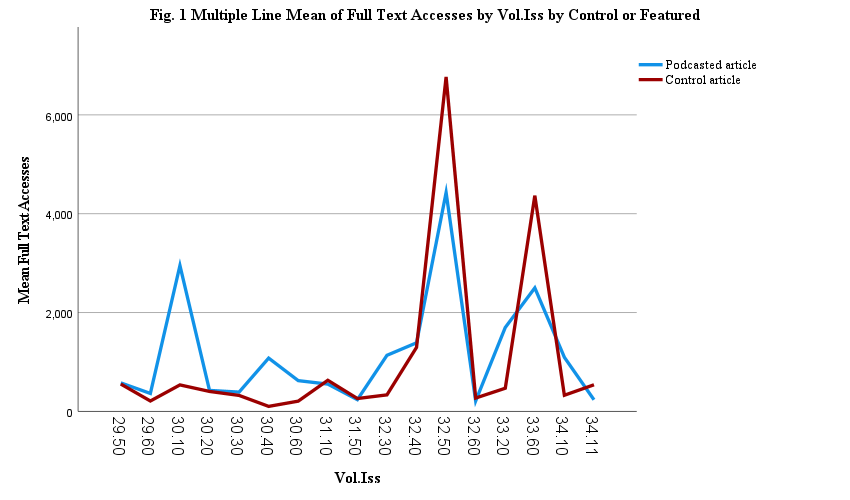 Flynn Lewellyn and I compared the pageviews of American Journal of Human Biology articles highlighted directly on the Sausage of Science podcast to control articles not highlighted from the same issue. Flynn Lewellyn and I compared the pageviews of American Journal of Human Biology articles highlighted directly on the Sausage of Science podcast to control articles not highlighted from the same issue. In Reno for the Human Biology Association Annual Scientific Meeting, my undergraduate student Flynn Lewellyn and I presented a poster on publicly engaged scholarship and the Sausage of Science podcast. We left the theory of out the poster, but Flynn and I were determined to tell everyone why our poster is important. I introduced them to Agustin Fuentes and mentioned needing to do something about publicly engaged scholarship in the main forums of our organizations. Agustin is currently battling with millions of trolls on Twitter because of his SciAm post about the non-binariness of sex and non-existence of race, etc. Agustin suggested we do a position paper on this topic, so in my mind, we're now doing a position paper. I put out an informal query about a 2024 session somewhere on publicly engaged anthropology and got a bunch of responses indicating interest, including from the editor of American Anthropologist. And don't just invite yourself for academic talks---find those local Science Cafe or Science on Tap or or whatever they call the "grog talk" program that probably exists in a town near you. They are programs that host academic talks in bar/restaurants. If you can't find one, start one! They are a great way to meet local business owners who share similar values and other academics who like talking with a beer in hand. Last fall I was invited to be one of the initial speakers for the Discourse Birmingham series, hosted at local bars in Birmingham. I gave a tattoo talk in the fall at Monday Night Brewing Company, and it went really well. I felt great about the talk, and the hosts Lawrence and Janek invited me back for another talk this spring at Rojo. This gave me a chance to tweak my book talk for a public audience. I've given public book readings but not yet a public talk on this book, so this was important for me. And, again, I think it went really well; this is based purely on people staying to meet me until the bars closed, and they kicked us out. My mother gave one of my books to her pastor because she thought it would be of interest to her church congregation. The Garden is one of those churches that has a roughly Christian template but is mostly about communing with other humans, having a sense of a Higher Power that loves everyone, and community service. My mom likes that the pastor emphasizes messages that resonate with modern life and keeps services short. The pastor likes the book because it's interesting and, as she pointed out several times, the only academic book that's made her laugh out loud. She and my mother arranged to have me speak this past Sunday as what was in fact the main talk of the service, and my mother paid to bring me up. I talked about fireside relaxation, spiritual transcendence, and the biology of self-soothing. Since the trip was paid for, I'd be able to stay at my parents' place and have access to their vehicle for free, I offered myself up for free lectures to anthropology departments at other nearby universities. I wanted it to be worth the effort for me to travel and my mother to pay for me, so I reached out to people I already know. I've been active in professional organizations since I started graduate school and cohost a weekly science podcast, so, among other reasons, I know a fair amount of people I can reach out to. I got in touch with colleagues at several Indiana universities and managed to book a tattoo talk at Indiana University on Monday and a public engagement talk at Purdue on Tuesday. I went to IU right out of high school for my first two years of college. It wasn't in anthropology, but that was still cool and special for me. I gave a tattoo talk and met another anthropology professor who's been tasked with teaching the "anthropology of sex, drugs, and rock'n'roll." I may have dropped Paul Mahern's name, who I only know personally thru Facebook but whose band was the first punk rock show I ever saw. Mahern is lead singer of The Zero Boys, Indiana's first and best hardcore punk band. He has been a recording engineer, producer, and studio owner for 30 years, and is now also a college educator. I gave a talk about publicly engaged anthropology and how to make it count at Purdue on Tuesday. I offered them one of my usual talks, but I know enough people at Purdue who know enough about me that they asked for a different talk. They asked for a talk about my public engagement, such as my podcast... So I took the opportunity to combine the workshop I've been running with my discipline to give tips specific for an anthropology department with a similar scope to the one I'm in. While there, I met with Kari Guilbault, a bioarchaeology student who has been conducting an MA study of Nubian mummy tattoos. We had communicated before COVID19 and I offered a talk to Purdue if I could ever get to my folks during the academic semester (only an hour from my parents' house, so a low-stress offer). It was useful to workshop this new talk for my friend and primary host Dr. Melanie Beasley. Melanie and I have gotten to know each other through biological anthropology professional organizations over the course of our careers. Their department included me as part of their Anthropologies of Tomorrow series and thanked me for inviting myself, because departments also become too busy too organize their funded speaker series. Colleges and departments provide funding for such series, but departments often forego these opportunities because faculty feel or are over-serviced. As a publicly engaged scholarly, these are the types of opportunities I foster (as host) at my own university and seek out via others' programs. Melanie gave me some good advice on how to flesh out the slides to make my points; and I realized I can integrate more of my projects as examples in ways I hadn't thought of previously. I haven't mentioned making it count. What I mean by that is academics need to justify this publicly engaged work as scholarship to get institutional recognition and protection for it. As my friend and colleague Drew Pearl said this year in probably the more profound statement I heard through our tutelage of the PELC program, "universities are structural institutions and inherently conservative, but the faculty tend to be progressive," or something to that effect. Boom. Mic drop.
But not really. Since they are conservative, we have to meet them halfway by developing ways to measure public engagement and turn it into peer-reviewed scholarship, which is the coin of the realm. The examples I use in this talk include our recent efforts to measure the impact of the podcast and turn the #Hackademics series into a special issue but the many retrofitted articles I've written about public programs I've developed or events I've been involved with. This, I suspect, will be the basis for a position paper...
2 Comments
Dr. Cara Ocobock and I are proud to announce the official publication of the #Hackademics Special Issue of American Journal of Human Biology that we co-edited!
https://onlinelibrary.wiley.com/toc/15206300/2022/34/S1... All articles are #openaccess for the next 3 months and relevant across academia. In this issue you will find:
This new article published today in American Journal of Human Biology compares tenure-track and tenured anthropologists by gender with regard to the obstacles in navigating family and fieldwork. Doctoral student Lisa Brazelton and undergraduate Lauren Landgraf are in my lab, and this is the first peer-reviewed academic paper for both of them! This is part of a special issues called "#Hackademics: Hacks Toward Succeeding in Academia" that I coedited with Cara Ocobock.
https://onlinelibrary.wiley.com/doi/10.1002/ajhb.23686 |
Christopher D. LynnI am a Professor of Anthropology at the University of Alabama with expertise in biocultural medical anthropology. Archives
May 2023
Categories
All
|

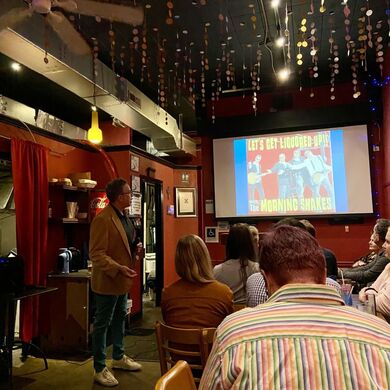
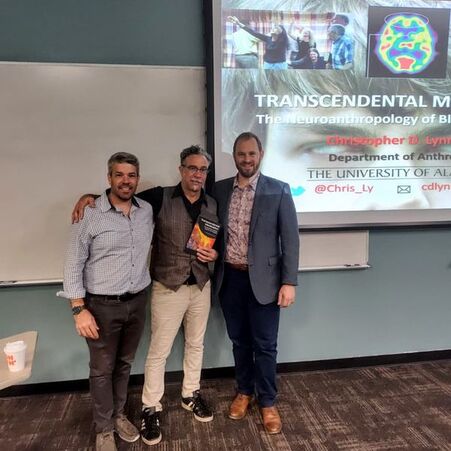
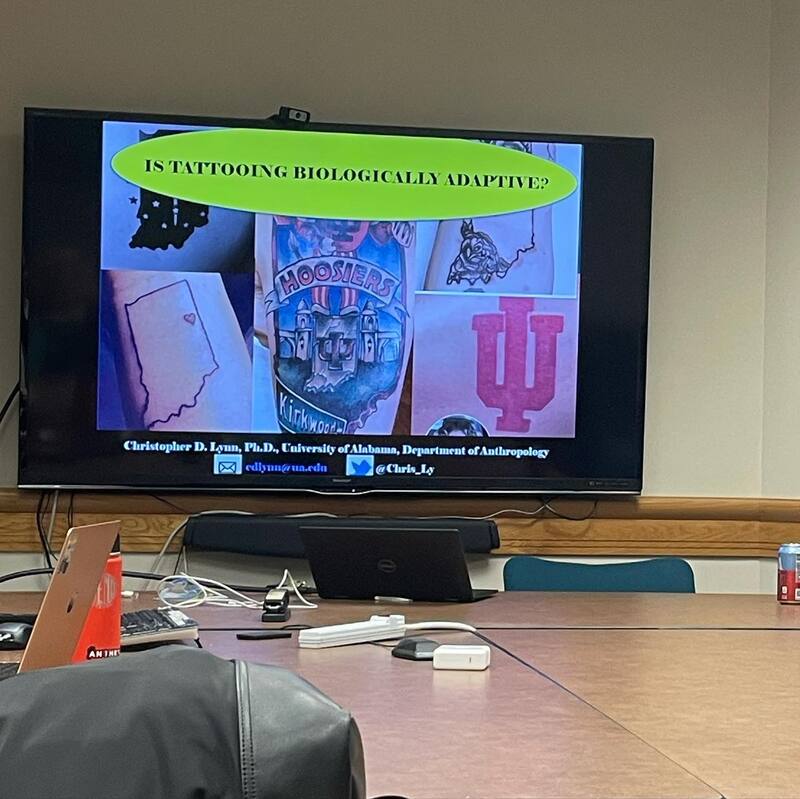
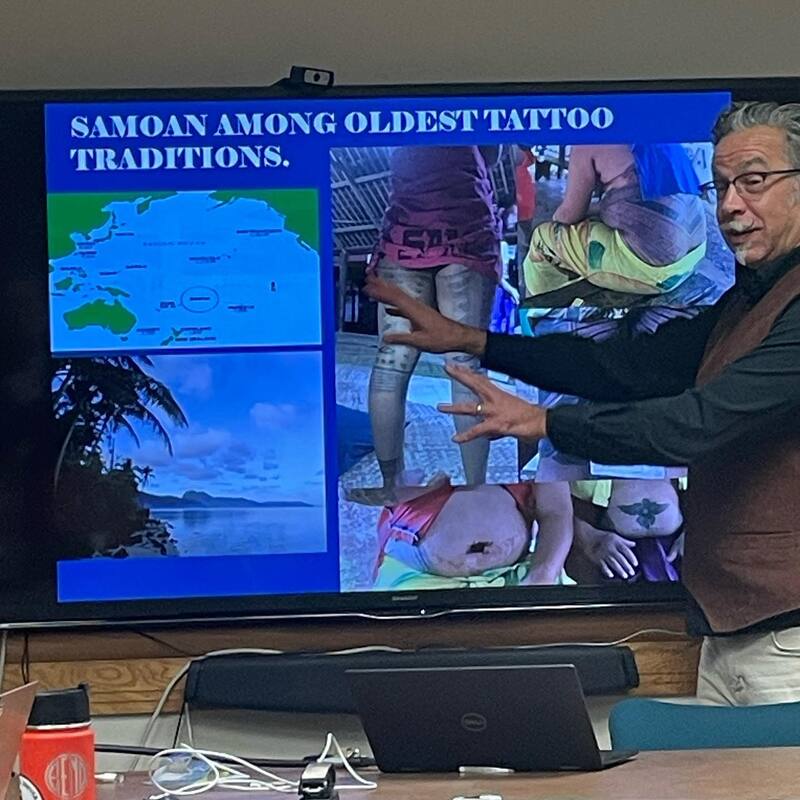
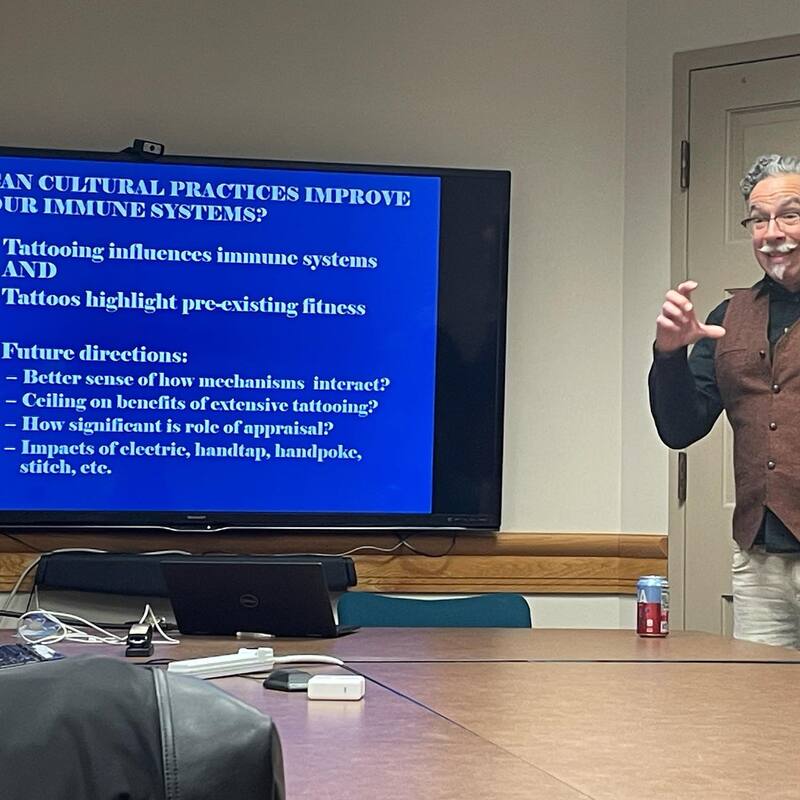
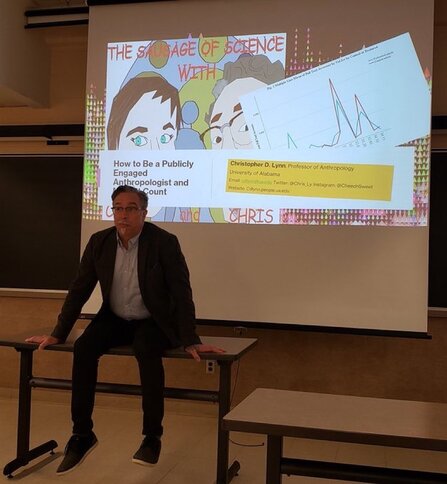
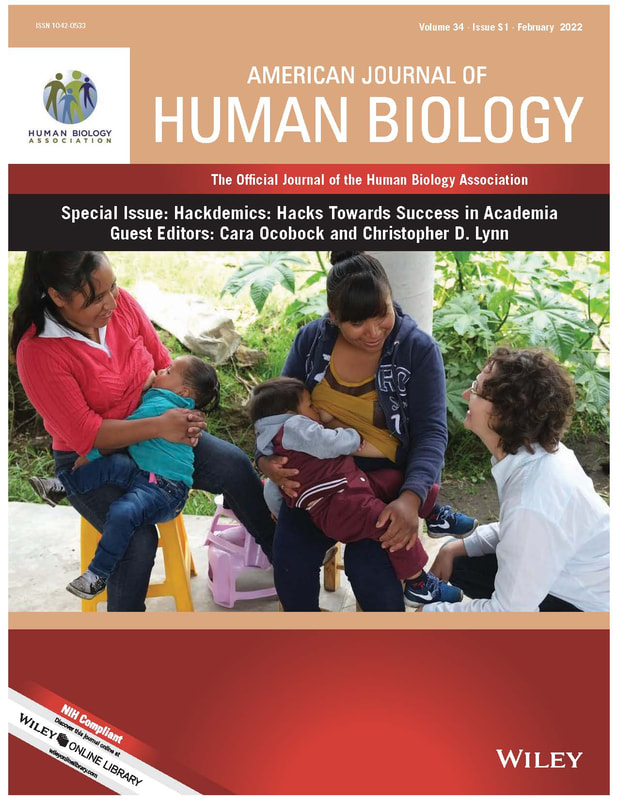
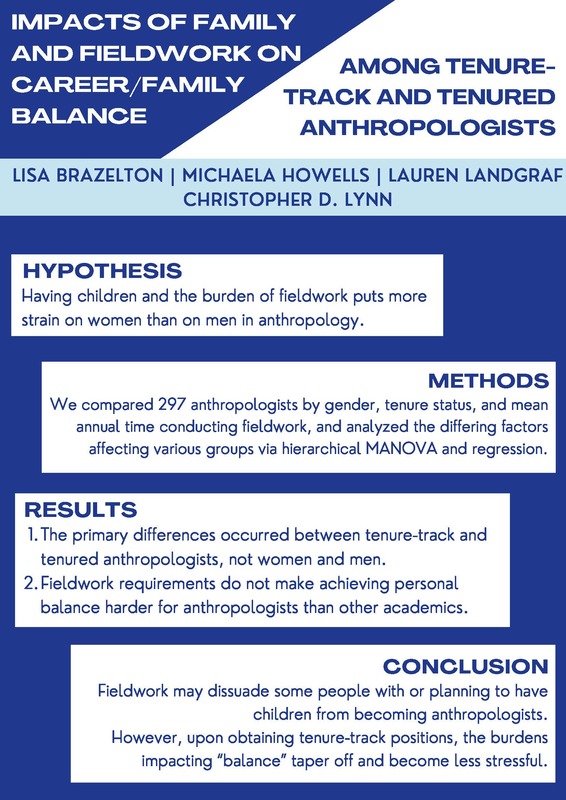
 RSS Feed
RSS Feed
